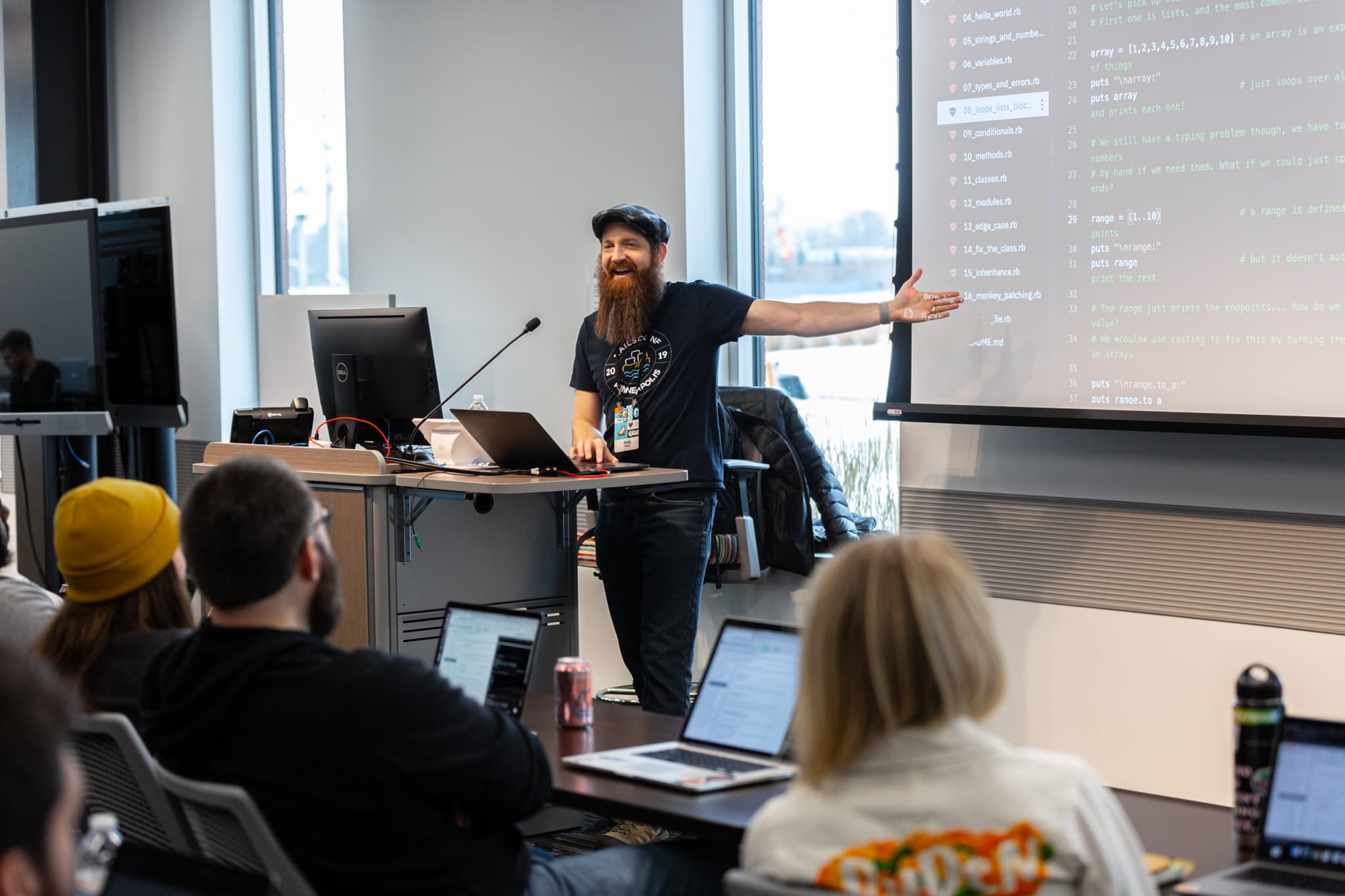
It’s no surprise that starting a tech company in the Midwest has its challenges, but something I get asked more often than not is, “Where are you hiring your talent? There’s no way you’re going to convince engineers (or anyone for that matter) to move to Omaha.” It’s a valid question and concern, but also one that Flywheel has figured out the solution to again and again over the past several years.
In most cases we’ve been able to hire, train, and promote from within. Just ask one of our Engineering Managers, Amanda, about her journey to Flywheel! But when it comes to looking for engineers in the Omaha metro who have experience with Ruby on Rails (what Flywheel is built on), the critics are right. They’re few and far between.
After growing our engineering team from 10 people to 55 in a matter of two and a half years, you would think hiring would be slowing down a bit, right? Not at Flywheel! As we started to plan 2020’s hiring plan, it became clear that our engineering team was still scaling, and the pool of candidates was smaller and smaller. So, instead of doing something drastic like moving our headquarters, we just got creative and got to work.

After ideating with departments across the company, we came up with a three-phase plan. The first was admittedly something any company can do: host a networking event for potential candidates at a local bar. We called it Ruby on Ales and invited any engineers that were interested in learning more about Ruby to join us for a night of conversation. By the end of the night we met more than 30 engineers that were interested in learning more about Ruby (and Flywheel!). Now, at this point, most companies would call it a day and interview a few of the attendees. But we had something a bit more intentional planned!
Our next phase involved leading a workshop for anyone who came to the Happy Hour could attend. We hosted 20 engineers of all experience levels at our office in late January for two nights and Andy Neely, one of our software engineers, led a crash course on Ruby on Rails (totally free of charge!). We also provided pizza and beer and got to know the engineers who showed up a little more intimately.
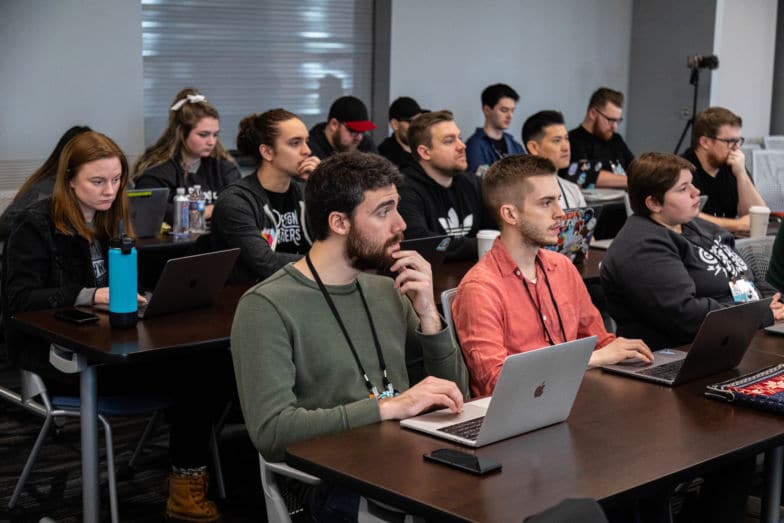
After the workshop, we had nine people apply to Flywheel. Our Talent Acquisition team interviewed four candidates, and we then hired 2 of them on March 24. In addition to hiring Iza and Zach, we created new relationships with dozens of engineers around the city!
“It was impressive how quickly it all came together. The coolest part of the Ruby on Ales event series was the fact that we saw a problem and just did something about it, refusing to let a roadblock stand in our way.” -Kelsey Campbell, Flywheel’s Senior Talent Advisor
We didn’t stop once we brought on our new hires, though, which brings us to phase three. Another concern we wanted to address was that we were sending our newest engineers into their careers at Flywheel without the tools needed to truly succeed. So we called on our friends at Unabridged Software and they helped us identify how we could better support our employees who were coming from other technology stacks through their Professional Learning Communities system.

After meeting with Unabridged, they created a Ruby curriculum, wrote a textbook with practice problem sets, and led a two-week course for our new and recent hires during the first two weeks of April. Our two newest hires (and four existing employees!) focused on transitioning to the new tech stack and tooling and complete projects to solidify that understanding.
“They didn’t seem to mind the fact that I had no experience with Ruby and Rails, and I got the feeling that they were rather looking for intelligent people that fit their culture. Soon after I found out that I’d be joining a group of Flywheel engineers in a Ruby crash course for those who didn’t have Ruby experience. I mean how awesome is that!” -Izabela Vonk, Software Engineer
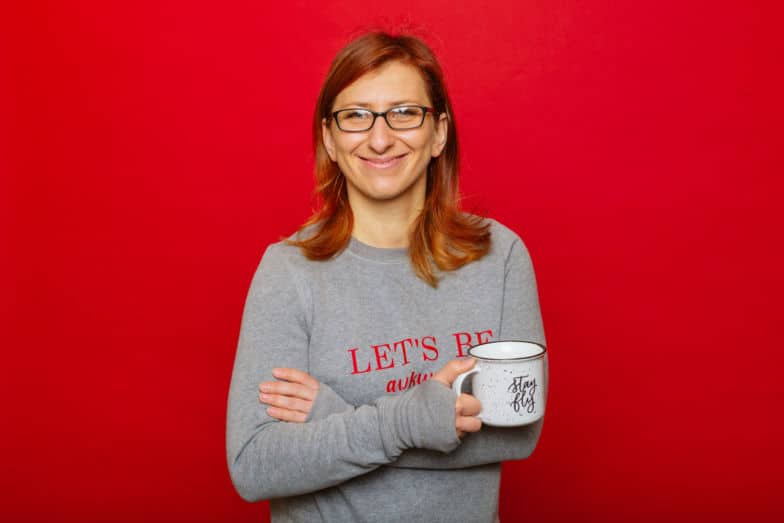
At the end of the course, they received a comprehensive evaluation (along with notes on how to continue to grow), returned to their teams, and began to make an immediate impact. We had back-end developers that transitioned from Java were able to complete and deploy complex changes within a few days. Front-end developers who had less experience with Ruby and Ruby on Rails (and more experience with HTML, CSS, and Javascript) were able to make sense of the back-end and make necessary changes, rather than needing to wait for a back-end developer to help them. And more junior employees had a much stronger grasp of Ruby and its patterns, particularly the more complex language features like lambdas and modules, at the end of the course than they did going in.
“I came into training only knowing what I had learned from the Ruby on Ales workshop and came out ready to write production level code immediately. It really says a lot about the integrity and intentionality of an organization when they are willing to invest so much in their people.” -Zach Merrill, Software engineer

So, after three months of planning, three separate events, and meeting dozens of candidates, we hired two engineers. It may seem like a lot of work for the outcome, but was it worth it? Absolutely.
“Our partnership with Unabridged turned out just as we hoped it would. Andrew Ek put together a training course that was thoughtful, thorough, and ultimately successful. Introducing engineers to a team can take a good amount of time, especially when they’re learning a new language, but the Unabridged training gave our new engineers a leg up in onboarding. They were productively writing code in a matter of days (or even hours).” -Tony Noecker, Flywheel’s CTO
Whether you’re a tech company of 500 employees in San Francisco or a small startup located in the Midwest, I can guarantee that the talent is out there. The question is how hard are you willing to work to attract, hire, and retain them?
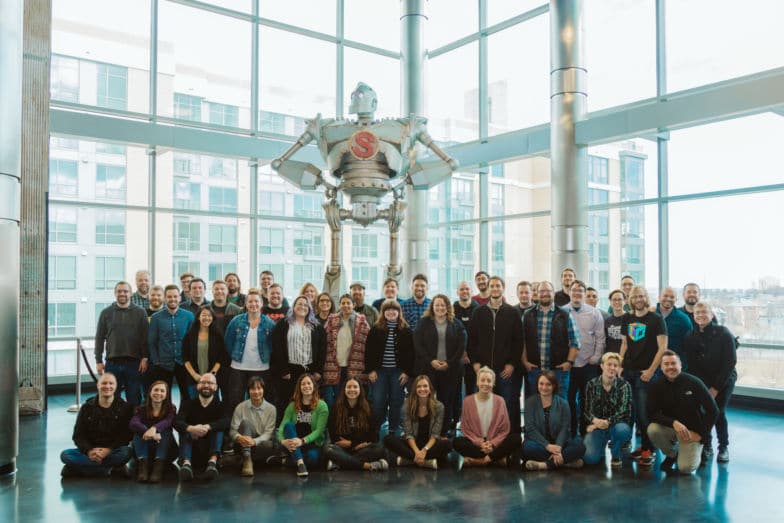
Tommy Vacek is the VP of Engineering at Flywheel. If you’re interested in learning more, message him on LinkedIn!
















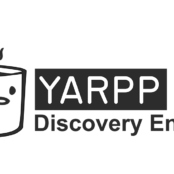


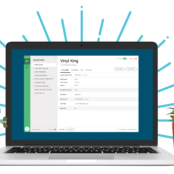

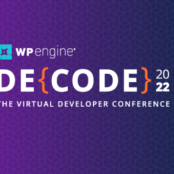
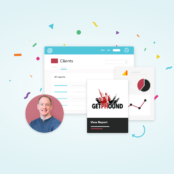



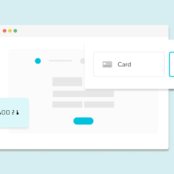

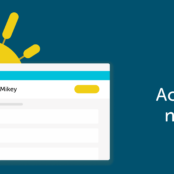







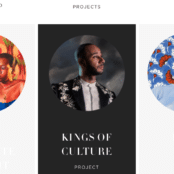





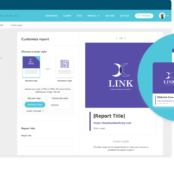






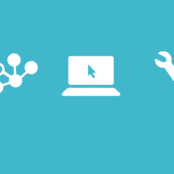














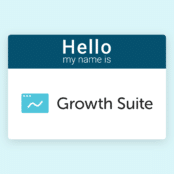



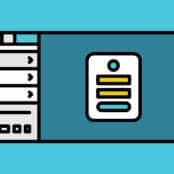















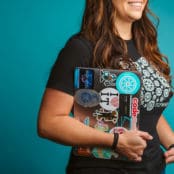
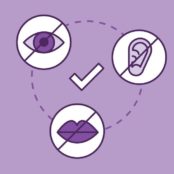











Comments ( 302 )
Haroldhaugh
June 5, 2025
замена венцов новокузнецк
Josephner
May 28, 2025
Medications online Australia: Medications online Australia - Discount pharmacy Australia
CurtisAdurl
May 28, 2025
Medications online Australia: Online drugstore Australia - online pharmacy australia
Josephner
May 28, 2025
buy antibiotics for uti: BiotPharm - antibiotic without presription
Rodneysog
May 28, 2025
Pharm Au24 [url=https://pharmau24.com/#]Online drugstore Australia[/url] PharmAu24
Josephner
May 28, 2025
Over the counter antibiotics pills: buy antibiotics online - buy antibiotics online
Josephner
May 27, 2025
buy antibiotics for uti: buy antibiotics online uk - over the counter antibiotics
CurtisAdurl
May 27, 2025
online pharmacy australia: Pharm Au24 - Buy medicine online Australia
Davidunlor
May 27, 2025
https://eropharmfast.com/# cheapest ed treatment
CurtisAdurl
May 27, 2025
Buy medicine online Australia: Online medication store Australia - Licensed online pharmacy AU
Josephner
May 27, 2025
Online drugstore Australia: Online drugstore Australia - pharmacy online australia
CurtisAdurl
May 27, 2025
buy antibiotics for uti: buy antibiotics over the counter - get antibiotics without seeing a doctor
Rodneysog
May 27, 2025
erectile dysfunction pills online [url=https://eropharmfast.shop/#]where can i buy erectile dysfunction pills[/url] Ero Pharm Fast
Davidunlor
May 27, 2025
https://eropharmfast.shop/# ed online pharmacy
Josephner
May 27, 2025
Ero Pharm Fast: ed pills for sale - Ero Pharm Fast
Charlesmub
May 27, 2025
antibiotic without presription: cheapest antibiotics - over the counter antibiotics
CurtisAdurl
May 27, 2025
Online drugstore Australia: Online drugstore Australia - Medications online Australia
JosephTes
May 24, 2025
cialis for performance anxiety [url=https://tadalaccess.com/#]cialis black 800 mg pill house[/url] ordering tadalafil online
JosephTes
May 23, 2025
cialis otc switch [url=https://tadalaccess.com/#]TadalAccess[/url] cialis shelf life
Lorenhag
May 23, 2025
cialis from mexico: Tadal Access - generic cialis tadalafil 20mg reviews
FrankieLar
May 23, 2025
https://tadalaccess.com/# when does cialis go off patent
JosephTes
May 23, 2025
cialis free [url=https://tadalaccess.com/#]walmart cialis price[/url] cialis 40 mg reviews
Lorenhag
May 23, 2025
online cialis: TadalAccess - dapoxetine and tadalafil
JosephTes
May 23, 2025
buy voucher for cialis daily online [url=https://tadalaccess.com/#]TadalAccess[/url] cialis daily dosage
FrankieLar
May 23, 2025
https://tadalaccess.com/# what is the active ingredient in cialis
JosephTes
May 23, 2025
cialis for daily use [url=https://tadalaccess.com/#]Tadal Access[/url] canada drugs cialis
Lorenhag
May 23, 2025
cialis soft tabs: TadalAccess - buy tadalafil cheap online
JosephTes
May 23, 2025
cialis vs flomax for bph [url=https://tadalaccess.com/#]TadalAccess[/url] cialis samples for physicians
FrankieLar
May 22, 2025
https://tadalaccess.com/# how well does cialis work
Lorenhag
May 22, 2025
cialis no prescription: how much does cialis cost at walgreens - buying cialis in canada
FrankieLar
May 22, 2025
https://tadalaccess.com/# cialis over the counter at walmart
JosephTes
May 22, 2025
peptide tadalafil reddit [url=https://tadalaccess.com/#]difference between sildenafil tadalafil and vardenafil[/url] cialis drug
Lorenhag
May 22, 2025
cialis generico: TadalAccess - when does tadalafil go generic
JosephTes
May 22, 2025
cialis and nitrates [url=https://tadalaccess.com/#]Tadal Access[/url] cialis generic versus brand name
FrankieLar
May 22, 2025
https://tadalaccess.com/# cialis 10mg reviews
Lorenhag
May 22, 2025
what is cialis: TadalAccess - tadalafil citrate powder
JosephTes
May 22, 2025
india pharmacy cialis [url=https://tadalaccess.com/#]shelf life of liquid tadalafil[/url] cialis is for daily use
Scottdroca
May 21, 2025
what is cialis used for: cialis online pharmacy - cialis professional ingredients
Lorenhag
May 21, 2025
how long does it take for cialis to take effect: what is the difference between cialis and tadalafil? - cialis generic canada
FrankieLar
May 21, 2025
https://tadalaccess.com/# cialis generic overnite
JosephTes
May 21, 2025
cialis generic online [url=https://tadalaccess.com/#]sunrise remedies tadalafil[/url] cialis dosage 20mg
Lorenhag
May 21, 2025
cialis 5mg daily: cialis tadalafil 20mg price - what is cialis used to treat
Scottdroca
May 21, 2025
cialis online no prior prescription: how much does cialis cost at walgreens - cheap cialis online overnight shipping
FrankieLar
May 21, 2025
https://tadalaccess.com/# cialis tadalafil 10 mg
JosephTes
May 21, 2025
how much does cialis cost with insurance [url=https://tadalaccess.com/#]TadalAccess[/url] cialis bathtub
Lorenhag
May 21, 2025
cialis how to use: TadalAccess - cialis active ingredient
Scottdroca
May 21, 2025
does cialis make you last longer in bed: Tadal Access - cheap cialis canada
FrankieLar
May 21, 2025
https://tadalaccess.com/# tadalafil medication
Lorenhag
May 21, 2025
cheaper alternative to cialis: buy cipla tadalafil - buy cialis without a prescription
JosephTes
May 21, 2025
where can i buy cialis online in canada [url=https://tadalaccess.com/#]cialis headache[/url] cialis not working first time
Scottdroca
May 20, 2025
tadalafil soft tabs: cialis patient assistance - cialis discount card
FrankieLar
May 20, 2025
https://tadalaccess.com/# buying cialis online
Lorenhag
May 20, 2025
overnight cialis: TadalAccess - best place to buy liquid tadalafil
Scottdroca
May 20, 2025
buy cheapest cialis: cialis prostate - super cialis
FrankieLar
May 20, 2025
https://tadalaccess.com/# buy cialis without doctor prescription
FrankieLar
May 20, 2025
https://tadalaccess.com/# cialis mexico
Scottdroca
May 20, 2025
cialis insurance coverage blue cross: canadian no prescription pharmacy cialis - cialis buy online
Lorenhag
May 20, 2025
cialis w/dapoxetine: TadalAccess - how long does cialis stay in your system
FrankieLar
May 20, 2025
https://tadalaccess.com/# online tadalafil
Scottdroca
May 20, 2025
buying cheap cialis online: TadalAccess - cialis alternative over the counter
FrankieLar
May 19, 2025
https://tadalaccess.com/# max dosage of cialis
Scottdroca
May 19, 2025
cialis side effects heart: TadalAccess - order cialis from canada
Lorenhag
May 19, 2025
cialis buy online: cialis drug class - cialis male enhancement
FrankieLar
May 19, 2025
https://tadalaccess.com/# when to take cialis for best results
Lorenhag
May 19, 2025
what is the difference between cialis and tadalafil?: generic cialis super active tadalafil 20mg - cheap cialis 20mg
Scottdroca
May 19, 2025
best price cialis supper active: TadalAccess - cialis tadalafil & dapoxetine
JosephTes
May 19, 2025
buy cheapest cialis [url=https://tadalaccess.com/#]TadalAccess[/url] tadalafil without a doctor prescription
Lorenhag
May 19, 2025
cialis with out a prescription: Tadal Access - cialis generics
Scottdroca
May 19, 2025
cialis canada free sample: cheapest 10mg cialis - canadian pharmacy cialis 40 mg
FrankieLar
May 19, 2025
https://tadalaccess.com/# cialis dapoxetine
JosephTes
May 19, 2025
e20 pill cialis [url=https://tadalaccess.com/#]TadalAccess[/url] when will cialis be generic
Lorenhag
May 19, 2025
cheapest cialis: TadalAccess - cialis 20 mg price walmart
Scottdroca
May 19, 2025
generic cialis vs brand cialis reviews: cialis tadalafil 20mg kaufen - buy cialis tadalafil
FrankieLar
May 18, 2025
https://tadalaccess.com/# mint pharmaceuticals tadalafil
JosephTes
May 18, 2025
tadalafil and sildenafil taken together [url=https://tadalaccess.com/#]cialis superactive[/url] how much is cialis without insurance
Lorenhag
May 18, 2025
whats cialis: buying generic cialis - cialis milligrams
Scottdroca
May 18, 2025
cialis for sale: Tadal Access - cialis canadian purchase
FrankieLar
May 18, 2025
https://tadalaccess.com/# cialis online no prior prescription
Lorenhag
May 18, 2025
max dosage of cialis: TadalAccess - tadalafil soft tabs
JosephTes
May 18, 2025
tadalafil citrate research chemical [url=https://tadalaccess.com/#]TadalAccess[/url] side effects cialis
Scottdroca
May 18, 2025
cialis price: TadalAccess - canadian pharmacy cialis 40 mg
FrankieLar
May 18, 2025
https://tadalaccess.com/# cialis free trial
Lorenhag
May 18, 2025
where can i buy cialis: TadalAccess - cialis picture
JosephTes
May 18, 2025
brand cialis with prescription [url=https://tadalaccess.com/#]cialis super active[/url] cialis dosage 20mg
Scottdroca
May 18, 2025
best place to buy liquid tadalafil: п»їwhat can i take to enhance cialis - buy cheap cialis online with mastercard
FrankieLar
May 18, 2025
https://tadalaccess.com/# buy cialis online no prescription
JosephTes
May 18, 2025
cialis daily vs regular cialis [url=https://tadalaccess.com/#]mint pharmaceuticals tadalafil reviews[/url] cheap tadalafil 10mg
Scottdroca
May 18, 2025
cialis com coupons: TadalAccess - cialis 5 mg for sale
Lorenhag
May 18, 2025
poppers and cialis: Tadal Access - cialis and dapoxetime tabs in usa
JosephTes
May 17, 2025
no prescription tadalafil [url=https://tadalaccess.com/#]TadalAccess[/url] cialis overnight shipping
Lorenhag
May 17, 2025
cialis and grapefruit enhance: when is the best time to take cialis - cialis professional 20 lowest price
FrankieLar
May 17, 2025
https://tadalaccess.com/# tadalafil citrate powder
JosephTes
May 17, 2025
cialis best price [url=https://tadalaccess.com/#]how well does cialis work[/url] stockists of cialis
Scottdroca
May 17, 2025
cialis alternative over the counter: tadalafil tablets 20 mg side effects - cialis no perscription overnight delivery
Lorenhag
May 17, 2025
tamsulosin vs. tadalafil: TadalAccess - buy generic cialis
FrankieLar
May 17, 2025
https://tadalaccess.com/# free samples of cialis
Lorenhag
May 17, 2025
whats the max safe dose of tadalafil xtenda for a healthy man: pastilla cialis - cialis tadalafil 10 mg
Scottdroca
May 17, 2025
buy cialis generic online: cialis review - how much does cialis cost at walmart
Lorenhag
May 17, 2025
when will generic tadalafil be available: Tadal Access - buying cialis online safe
FrankieLar
May 17, 2025
https://tadalaccess.com/# can i take two 5mg cialis at once
Scottdroca
May 17, 2025
cialis generic 20 mg 30 pills: TadalAccess - usa peptides tadalafil
Lorenhag
May 16, 2025
cialis not working: Tadal Access - is tadalafil peptide safe to take
JosephTes
May 16, 2025
letairis and tadalafil [url=https://tadalaccess.com/#]TadalAccess[/url] order cialis online no prescription reviews
FrankieLar
May 16, 2025
https://tadalaccess.com/# cialis online pharmacy
Lorenhag
May 16, 2025
cialis insurance coverage blue cross: TadalAccess - cialis where to buy in las vegas nv
FrankieLar
May 16, 2025
https://tadalaccess.com/# what is the generic name for cialis
JosephTes
May 16, 2025
cialis 20 mg tablets and prices [url=https://tadalaccess.com/#]tadalafil liquid review[/url] cialis covered by insurance
Scottdroca
May 16, 2025
cialis in canada: cialis for performance anxiety - cialis stopped working
FrankieLar
May 16, 2025
https://tadalaccess.com/# dapoxetine and tadalafil
JosephTes
May 16, 2025
cialis pricing [url=https://tadalaccess.com/#]Tadal Access[/url] buy cialis online safely
Scottdroca
May 16, 2025
best price on cialis 20mg: cialis com coupons - sanofi cialis
Lorenhag
May 16, 2025
active ingredient in cialis: canadian no prescription pharmacy cialis - best reviewed tadalafil site
FrankieLar
May 16, 2025
https://tadalaccess.com/# buy cialis online overnight delivery
JosephTes
May 16, 2025
which is better cialis or levitra [url=https://tadalaccess.com/#]cialis side effects forum[/url] how much does cialis cost at walgreens
Scottdroca
May 16, 2025
who makes cialis: tadalafil tablets side effects - cialis for sale toronto
Lorenhag
May 15, 2025
how long does it take for cialis to take effect: Tadal Access - best price on cialis 20mg
FrankieLar
May 15, 2025
https://tadalaccess.com/# when to take cialis for best results
JosephTes
May 15, 2025
cialis soft tabs [url=https://tadalaccess.com/#]canadian cialis[/url] cialis 5mg how long does it take to work
Scottdroca
May 15, 2025
tamsulosin vs. tadalafil: cialis interactions - buying generic cialis
Lorenhag
May 15, 2025
cialis price walgreens: cialis online with no prescription - cialis a domicilio new jersey
JosephTes
May 15, 2025
cialis free trial coupon [url=https://tadalaccess.com/#]cialis vs flomax for bph[/url] buying cialis without prescription
Scottdroca
May 15, 2025
tadalafil generic cialis 20mg: cialis price per pill - when will generic cialis be available
Lorenhag
May 15, 2025
cialis online without a prescription: Tadal Access - cialis coupon online
FrankieLar
May 15, 2025
https://tadalaccess.com/# cialis dosages
JosephTes
May 15, 2025
cialis online overnight shipping [url=https://tadalaccess.com/#]TadalAccess[/url] purchase cialis online
Lorenhag
May 15, 2025
what is the normal dose of cialis: TadalAccess - buy cialis online in austalia
Scottdroca
May 15, 2025
cheaper alternative to cialis: TadalAccess - is generic tadalafil as good as cialis
FrankieLar
May 15, 2025
https://tadalaccess.com/# cialis mit paypal bezahlen
JosephTes
May 15, 2025
buy generic cialiss [url=https://tadalaccess.com/#]TadalAccess[/url] shelf life of liquid tadalafil
Lorenhag
May 15, 2025
best place to get cialis without pesricption: TadalAccess - cialis effect on blood pressure
Scottdroca
May 15, 2025
cialis male enhancement: TadalAccess - what is cialis taken for
Lorenhag
May 14, 2025
cialis 10mg price: TadalAccess - tadalafil soft tabs
JosephTes
May 14, 2025
cialis online aust [url=https://tadalaccess.com/#]Tadal Access[/url] sildenafil vs cialis
FrankieLar
May 14, 2025
https://tadalaccess.com/# cialis canada sale
Lorenhag
May 14, 2025
is generic cialis available in canada: uses for cialis - oryginal cialis
Scottdroca
May 14, 2025
average dose of tadalafil: TadalAccess - cialis without prescription
FrankieLar
May 14, 2025
https://tadalaccess.com/# cialis mit paypal bezahlen
JosephTes
May 14, 2025
online cialis prescription [url=https://tadalaccess.com/#]TadalAccess[/url] cialis what age
Lorenhag
May 14, 2025
buying cheap cialis online: cialis canadian purchase - buy tadalafil online no prescription
Scottdroca
May 14, 2025
buy cialis canadian: tadalafil vs cialis - canadian online pharmacy cialis
FrankieLar
May 14, 2025
https://tadalaccess.com/# cialis online pharmacy australia
JosephTes
May 14, 2025
cialis price [url=https://tadalaccess.com/#]cialis 5mg price walmart[/url] tadalafil 20mg (generic equivalent to cialis)
Lorenhag
May 14, 2025
stockists of cialis: Tadal Access - order cialis online no prescription reviews
Scottdroca
May 14, 2025
cialis mechanism of action: sanofi cialis otc - average dose of tadalafil
FrankieLar
May 14, 2025
https://tadalaccess.com/# buying cialis without prescription
MatthewTom
May 13, 2025
cost of amoxicillin 30 capsules [url=https://amohealthcare.store/#]Amo Health Care[/url] Amo Health Care
Russellfeeve
May 13, 2025
Amo Health Care: Amo Health Care - amoxicillin 825 mg
Oscargef
May 13, 2025
where to get generic clomid online: Clom Health - clomid cheap
RogerCouct
May 13, 2025
https://prednihealth.shop/# prednisone 4mg
Russellfeeve
May 13, 2025
where to get clomid pills: Clom Health - how to get cheap clomid without a prescription
MatthewTom
May 13, 2025
cost of amoxicillin [url=https://amohealthcare.store/#]Amo Health Care[/url] order amoxicillin online no prescription
Oscargef
May 13, 2025
amoxicillin 500mg tablets price in india: Amo Health Care - amoxicillin 500mg capsules
RogerCouct
May 13, 2025
https://amohealthcare.store/# where to buy amoxicillin over the counter
Russellfeeve
May 13, 2025
buy generic clomid without prescription: Clom Health - how can i get clomid tablets
MatthewTom
May 13, 2025
prednisone canada [url=http://prednihealth.com/#]prednisone price[/url] prednisone canada pharmacy
Oscargef
May 13, 2025
Amo Health Care: Amo Health Care - buy amoxicillin online no prescription
RogerCouct
May 13, 2025
https://prednihealth.shop/# prednisone 5 mg tablet price
Russellfeeve
May 13, 2025
Amo Health Care: Amo Health Care - Amo Health Care
MatthewTom
May 13, 2025
buying cheap clomid online [url=https://clomhealth.com/#]Clom Health[/url] cost clomid price
JudsonZoown
May 13, 2025
amoxicillin 875 125 mg tab: amoxicillin for sale - amoxicillin buy no prescription
Oscargef
May 13, 2025
prednisone generic cost: PredniHealth - generic prednisone for sale
RogerCouct
May 12, 2025
https://clomhealth.shop/# where buy cheap clomid without rx
MatthewTom
May 12, 2025
where to buy clomid without a prescription [url=https://clomhealth.com/#]Clom Health[/url] where to buy cheap clomid prices
JudsonZoown
May 12, 2025
order prednisone with mastercard debit: prednisone 2.5 mg price - prednisone online
Oscargef
May 12, 2025
azithromycin amoxicillin: Amo Health Care - Amo Health Care
Russellfeeve
May 12, 2025
can i purchase generic clomid pill: where to buy clomid without dr prescription - can i purchase generic clomid pill
RogerCouct
May 12, 2025
http://prednihealth.com/# generic prednisone 10mg
JudsonZoown
May 12, 2025
amoxicillin 500mg for sale uk: Amo Health Care - Amo Health Care
MatthewTom
May 12, 2025
how can i get cheap clomid without dr prescription [url=https://clomhealth.com/#]Clom Health[/url] can you buy generic clomid pill
Oscargef
May 12, 2025
cost clomid without insurance: where buy generic clomid pill - can i get generic clomid without insurance
Russellfeeve
May 12, 2025
can you buy cheap clomid without rx: Clom Health - cost cheap clomid pills
RogerCouct
May 12, 2025
https://prednihealth.com/# PredniHealth
JudsonZoown
May 12, 2025
buy cheap clomid price: Clom Health - how to get generic clomid for sale
Oscargef
May 12, 2025
Amo Health Care: Amo Health Care - Amo Health Care
MatthewTom
May 12, 2025
prednisone buy cheap [url=https://prednihealth.shop/#]PredniHealth[/url] PredniHealth
Russellfeeve
May 12, 2025
PredniHealth: PredniHealth - PredniHealth
RogerCouct
May 12, 2025
https://clomhealth.shop/# can i buy cheap clomid no prescription
JudsonZoown
May 12, 2025
order amoxicillin online uk: Amo Health Care - Amo Health Care
Oscargef
May 12, 2025
prednisone rx coupon: PredniHealth - PredniHealth
Albertoseino
May 11, 2025
modafinil legality: buy modafinil online - doctor-reviewed advice
RonaldFOEFS
May 11, 2025
https://zipgenericmd.com/# reliable online pharmacy Cialis
LorenzoBlize
May 10, 2025
affordable ED medication [url=https://zipgenericmd.shop/#]generic tadalafil[/url] reliable online pharmacy Cialis
RonaldFOEFS
May 10, 2025
https://modafinilmd.store/# doctor-reviewed advice
Jeremyfax
May 10, 2025
online Cialis pharmacy: cheap Cialis online - order Cialis online no prescription
Albertoseino
May 10, 2025
modafinil legality: modafinil 2025 - doctor-reviewed advice
LorenzoBlize
May 10, 2025
legit Viagra online [url=http://maxviagramd.com/#]same-day Viagra shipping[/url] safe online pharmacy
Jeremyfax
May 10, 2025
cheap Cialis online: buy generic Cialis online - order Cialis online no prescription
Albertoseino
May 10, 2025
safe modafinil purchase: buy modafinil online - legal Modafinil purchase
LorenzoBlize
May 10, 2025
FDA approved generic Cialis [url=http://zipgenericmd.com/#]affordable ED medication[/url] online Cialis pharmacy
Jeremyfax
May 10, 2025
same-day Viagra shipping: buy generic Viagra online - best price for Viagra
Albertoseino
May 10, 2025
safe modafinil purchase: verified Modafinil vendors - buy modafinil online
RonaldFOEFS
May 9, 2025
http://modafinilmd.store/# purchase Modafinil without prescription
Jeremyfax
May 9, 2025
order Viagra discreetly: safe online pharmacy - best price for Viagra
Albertoseino
May 9, 2025
discreet shipping: order Viagra discreetly - cheap Viagra online
LorenzoBlize
May 9, 2025
best price Cialis tablets [url=https://zipgenericmd.shop/#]buy generic Cialis online[/url] best price Cialis tablets
RonaldFOEFS
May 9, 2025
https://maxviagramd.shop/# order Viagra discreetly
Jeremyfax
May 9, 2025
Modafinil for sale: buy modafinil online - verified Modafinil vendors
LorenzoBlize
May 9, 2025
discreet shipping ED pills [url=https://zipgenericmd.com/#]discreet shipping ED pills[/url] online Cialis pharmacy
Albertoseino
May 9, 2025
legal Modafinil purchase: buy modafinil online - modafinil 2025
RonaldFOEFS
May 9, 2025
https://zipgenericmd.com/# cheap Cialis online
RobertKet
May 9, 2025
buy modafinil online: modafinil legality - purchase Modafinil without prescription
Jeremyfax
May 9, 2025
verified Modafinil vendors: legal Modafinil purchase - modafinil legality
RobertKet
May 9, 2025
modafinil 2025: verified Modafinil vendors - modafinil 2025
LorenzoBlize
May 9, 2025
modafinil legality [url=http://modafinilmd.store/#]purchase Modafinil without prescription[/url] modafinil legality
RonaldFOEFS
May 9, 2025
https://zipgenericmd.shop/# best price Cialis tablets
Jeremyfax
May 9, 2025
legal Modafinil purchase: buy modafinil online - modafinil pharmacy
RobertKet
May 9, 2025
modafinil legality: verified Modafinil vendors - verified Modafinil vendors
ZackaryCaush
May 7, 2025
https://pinupaz.top/# pin up
ZackaryCaush
May 7, 2025
http://pinupaz.top/# pin up az
Richardmat
May 7, 2025
vavada вход [url=https://vavadavhod.tech/#]вавада казино[/url] вавада
Richardmat
May 6, 2025
pinup az [url=https://pinupaz.top/#]pin-up[/url] pin up casino
Richardmat
May 5, 2025
vavada вход [url=http://vavadavhod.tech/#]вавада зеркало[/url] вавада зеркало
Richardmat
May 4, 2025
пинап казино [url=https://pinuprus.pro/#]пин ап казино[/url] пин ап зеркало
ZackaryCaush
May 3, 2025
https://pinupaz.top/# pin-up
Richardmat
May 3, 2025
pinup az [url=http://pinupaz.top/#]pin-up casino giris[/url] pin-up casino giris
ZackaryCaush
May 3, 2025
http://pinuprus.pro/# пин ап вход
ZackaryCaush
May 2, 2025
https://pinupaz.top/# pin up azerbaycan
Richardmat
May 2, 2025
pin-up casino giris [url=http://pinupaz.top/#]pin up az[/url] pin-up casino giris
Richardmat
May 1, 2025
вавада официальный сайт [url=https://vavadavhod.tech/#]vavada[/url] vavada вход
Richardmat
May 1, 2025
vavada [url=http://vavadavhod.tech/#]вавада[/url] вавада зеркало
ZackaryCaush
May 1, 2025
http://vavadavhod.tech/# вавада
Richardmat
May 1, 2025
пин ап казино официальный сайт [url=http://pinuprus.pro/#]пинап казино[/url] пин ап вход
ZackaryCaush
April 30, 2025
https://pinuprus.pro/# пин ап зеркало
Richardmat
April 30, 2025
пин ап зеркало [url=https://pinuprus.pro/#]пин ап казино официальный сайт[/url] пин ап казино
Kennethsheby
April 30, 2025
pin up вход: пин ап вход - pin up вход
ElmerSip
April 30, 2025
пин ап вход: пин ап зеркало - пинап казино
ZackaryCaush
April 30, 2025
http://pinupaz.top/# pin-up casino giris
Richardmat
April 30, 2025
pin-up casino giris [url=http://pinupaz.top/#]pinup az[/url] pin up casino
Kennethsheby
April 30, 2025
pin up casino: pin up azerbaycan - pin-up
ElmerSip
April 30, 2025
пинап казино: пинап казино - pin up вход
ZackaryCaush
April 30, 2025
https://vavadavhod.tech/# вавада казино
Richardmat
April 30, 2025
pin up azerbaycan [url=http://pinupaz.top/#]pin up azerbaycan[/url] pin-up casino giris
Kennethsheby
April 30, 2025
pinup az: pin up azerbaycan - pinup az
ElmerSip
April 30, 2025
pin up azerbaycan: pin-up - pin up casino
ZackaryCaush
April 30, 2025
http://pinuprus.pro/# пин ап зеркало
Kennethsheby
April 30, 2025
пин ап казино официальный сайт: pin up вход - пин ап зеркало
Richardmat
April 30, 2025
pin up azerbaycan [url=https://pinupaz.top/#]pin up[/url] pin-up casino giris
ElmerSip
April 30, 2025
pin up casino: pin-up - pinup az
Walterhap
April 30, 2025
https://expressrxcanada.shop/# canadian pharmacies
MichaelFaulp
April 29, 2025
pharmacy canadian: Buy medicine from Canada - canadian pharmacy price checker
Dannysit
April 29, 2025
legal to buy prescription drugs from canada: ExpressRxCanada - canadian pharmacy in canada
Stevendrype
April 29, 2025
Rx Express Mexico: mexican rx online - mexico pharmacy order online
MichaelFaulp
April 29, 2025
safe canadian pharmacy: Canadian pharmacy shipping to USA - canadianpharmacyworld
Dannysit
April 29, 2025
buying prescription drugs in mexico: RxExpressMexico - reputable mexican pharmacies online
Michaeljouch
April 29, 2025
mexico pharmacy order online [url=https://rxexpressmexico.shop/#]best online pharmacies in mexico[/url] mexico pharmacies prescription drugs
Stevendrype
April 29, 2025
online pharmacy india: indian pharmacy online - Medicine From India
Dannysit
April 29, 2025
mexico pharmacy order online: mexican rx online - Rx Express Mexico
MichaelFaulp
April 29, 2025
canadianpharmacyworld com: Express Rx Canada - my canadian pharmacy reviews
Walterhap
April 29, 2025
https://rxexpressmexico.com/# mexican online pharmacy
Stevendrype
April 29, 2025
reputable canadian online pharmacies: ExpressRxCanada - canadian online drugs
Dannysit
April 29, 2025
Medicine From India: MedicineFromIndia - indian pharmacy
Walterhap
April 29, 2025
http://expressrxcanada.com/# canadian discount pharmacy
MichaelFaulp
April 29, 2025
mexico drug stores pharmacies: Rx Express Mexico - mexico pharmacy order online
Stevendrype
April 29, 2025
canada discount pharmacy: Express Rx Canada - canadian pharmacy online
Michaeljouch
April 29, 2025
RxExpressMexico [url=https://rxexpressmexico.shop/#]medicine in mexico pharmacies[/url] mexican rx online
Dannysit
April 29, 2025
canadian pharmacy ed medications: Express Rx Canada - canadian pharmacy prices
Walterhap
April 29, 2025
http://rxexpressmexico.com/# mexico drug stores pharmacies
Stevendrype
April 28, 2025
indian pharmacy online: MedicineFromIndia - MedicineFromIndia
MichaelFaulp
April 28, 2025
indian pharmacy online shopping: MedicineFromIndia - cheapest online pharmacy india
Michaeljouch
April 28, 2025
reputable mexican pharmacies online [url=https://rxexpressmexico.com/#]mexico pharmacy order online[/url] mexican rx online
Dannysit
April 28, 2025
mexico drug stores pharmacies: Rx Express Mexico - mexican online pharmacy
Walterhap
April 28, 2025
https://expressrxcanada.com/# canada ed drugs
Stevendrype
April 28, 2025
mexico pharmacies prescription drugs: Rx Express Mexico - Rx Express Mexico
MichaelFaulp
April 28, 2025
best canadian online pharmacy: canadian pharmacy price checker - reliable canadian pharmacy
Michaeljouch
April 28, 2025
india pharmacy [url=https://medicinefromindia.shop/#]indian pharmacy[/url] indian pharmacy online shopping
Dannysit
April 28, 2025
mexico pharmacies prescription drugs: mexican rx online - mexico pharmacy order online
Walterhap
April 28, 2025
http://expressrxcanada.com/# canadian drug
Stevendrype
April 28, 2025
trusted canadian pharmacy: Generic drugs from Canada - canadian pharmacies online
MichaelFaulp
April 28, 2025
mexico drug stores pharmacies: RxExpressMexico - mexico pharmacies prescription drugs
Dannysit
April 28, 2025
pharmacy canadian: Express Rx Canada - online pharmacy canada
Michaeljouch
April 28, 2025
best rated canadian pharmacy [url=https://expressrxcanada.shop/#]Buy medicine from Canada[/url] reputable canadian online pharmacies
Walterhap
April 28, 2025
https://expressrxcanada.shop/# canadian pharmacy cheap
Stevendrype
April 28, 2025
indian pharmacy online shopping: indian pharmacy online - medicine courier from India to USA
MichaelFaulp
April 28, 2025
mexican rx online: mexican rx online - mexican online pharmacy
Bradleyfup
April 28, 2025
Tadalafil 20 mg prix sans ordonnance: Acheter Cialis - Cialis generique prix tadalmed.shop
BilliesniCt
April 27, 2025
kamagra oral jelly: Kamagra pharmacie en ligne - Acheter Kamagra site fiable
Robertmut
April 27, 2025
https://kamagraprix.com/# kamagra en ligne
Robertmut
April 27, 2025
http://pharmafst.com/# Pharmacie en ligne livraison Europe
Bradleyfup
April 26, 2025
Kamagra Oral Jelly pas cher: kamagra gel - Acheter Kamagra site fiable
BernardVeida
April 26, 2025
pharmacie en ligne france livraison belgique: pharmacie en ligne - Pharmacie en ligne livraison Europe pharmafst.com
Robertmut
April 26, 2025
https://tadalmed.com/# Tadalafil achat en ligne
PeterUnomb
April 26, 2025
Cialis en ligne [url=http://tadalmed.com/#]Pharmacie en ligne Cialis sans ordonnance[/url] Cialis sans ordonnance pas cher tadalmed.com
Bradleyfup
April 26, 2025
pharmacie en ligne france fiable: Pharmacies en ligne certifiees - vente de mГ©dicament en ligne pharmafst.com
Robertmut
April 26, 2025
http://kamagraprix.com/# kamagra livraison 24h
Bradleyfup
April 26, 2025
pharmacie en ligne france pas cher: pharmacie en ligne pas cher - acheter mГ©dicament en ligne sans ordonnance pharmafst.com
Robertmut
April 25, 2025
https://tadalmed.com/# Tadalafil sans ordonnance en ligne
BernardVeida
April 25, 2025
kamagra 100mg prix: kamagra 100mg prix - kamagra gel
Bradleyfup
April 25, 2025
Tadalafil 20 mg prix sans ordonnance: Tadalafil 20 mg prix en pharmacie - Acheter Cialis tadalmed.shop
PeterUnomb
April 25, 2025
kamagra pas cher [url=http://kamagraprix.com/#]Achetez vos kamagra medicaments[/url] kamagra gel
Robertmut
April 25, 2025
http://tadalmed.com/# Cialis generique prix
Bradleyfup
April 25, 2025
Achat mГ©dicament en ligne fiable: pharmacie en ligne pas cher - pharmacie en ligne france pas cher pharmafst.com
PeterUnomb
April 25, 2025
Tadalafil sans ordonnance en ligne [url=https://tadalmed.com/#]cialis generique[/url] Acheter Viagra Cialis sans ordonnance tadalmed.com
BilliesniCt
April 25, 2025
Kamagra Commander maintenant: Achetez vos kamagra medicaments - kamagra pas cher
BernardVeida
April 25, 2025
pharmacies en ligne certifiГ©es: Meilleure pharmacie en ligne - pharmacie en ligne livraison europe pharmafst.com
Bradleyfup
April 25, 2025
cialis generique: Tadalafil achat en ligne - cialis sans ordonnance tadalmed.shop
PeterUnomb
April 25, 2025
Tadalafil 20 mg prix sans ordonnance [url=https://tadalmed.shop/#]Cialis sans ordonnance 24h[/url] cialis sans ordonnance tadalmed.com
Robertmut
April 25, 2025
https://kamagraprix.com/# Acheter Kamagra site fiable
BernardVeida
April 25, 2025
pharmacie en ligne fiable: pharmacie en ligne - pharmacie en ligne avec ordonnance pharmafst.com
BilliesniCt
April 25, 2025
Cialis generique prix: Tadalafil 20 mg prix en pharmacie - cialis generique tadalmed.shop
Bradleyfup
April 25, 2025
achat kamagra: kamagra 100mg prix - Acheter Kamagra site fiable
DavidSaisp
April 23, 2025
Kamagra Oral Jelly pas cher: kamagra gel - kamagra 100mg prix
Edwardtoupe
April 23, 2025
olympe casino avis: casino olympe - olympe casino cresus